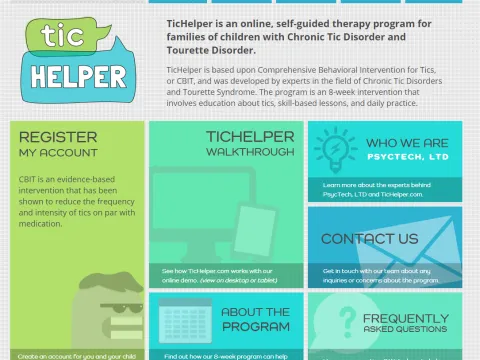“Tics” are sudden movements or sounds that happen over and over again. Examples of common tics are throat-clearing or eye-blinking. They are not done on purpose and are very difficult or impossible to stop. Some people with tics are not aware they are doing them. Tics tend to go up and down in frequency, change over time, and may or may not stop on their own. Each person’s tic triggers (for example: things that make tics increase) are different. Some of the most common triggers are feeling tired or having intense feelings like anxiety, excitement, or anger.
Tics are quite common in children – in fact, up to one in five children has experienced tics. Tics can be caused by a medical condition, may be a side effect of a medication or drug, or may happen on their own. They may also occur alongside mental health conditions.
Tics can appear on their own or as part of a tic disorder. A tic disorder may be diagnosed if symptoms first appear before age 18 years and when other possible medical (or medication) causes for the symptoms have been ruled out. The most common types of tic disorders are described below:
| Diagnosis | Description |
| Tourette syndrome/disorder | Multiple motor tics and 1 or more vocal tics for at least 1 year (may ebb and flow) |
| Persistent motor or vocal tic disorder | Vocal or motor tics for at least 1 year (may ebb and flow) |
| Provisional tic disorder | Vocal or motor tics for less than 1 year |




